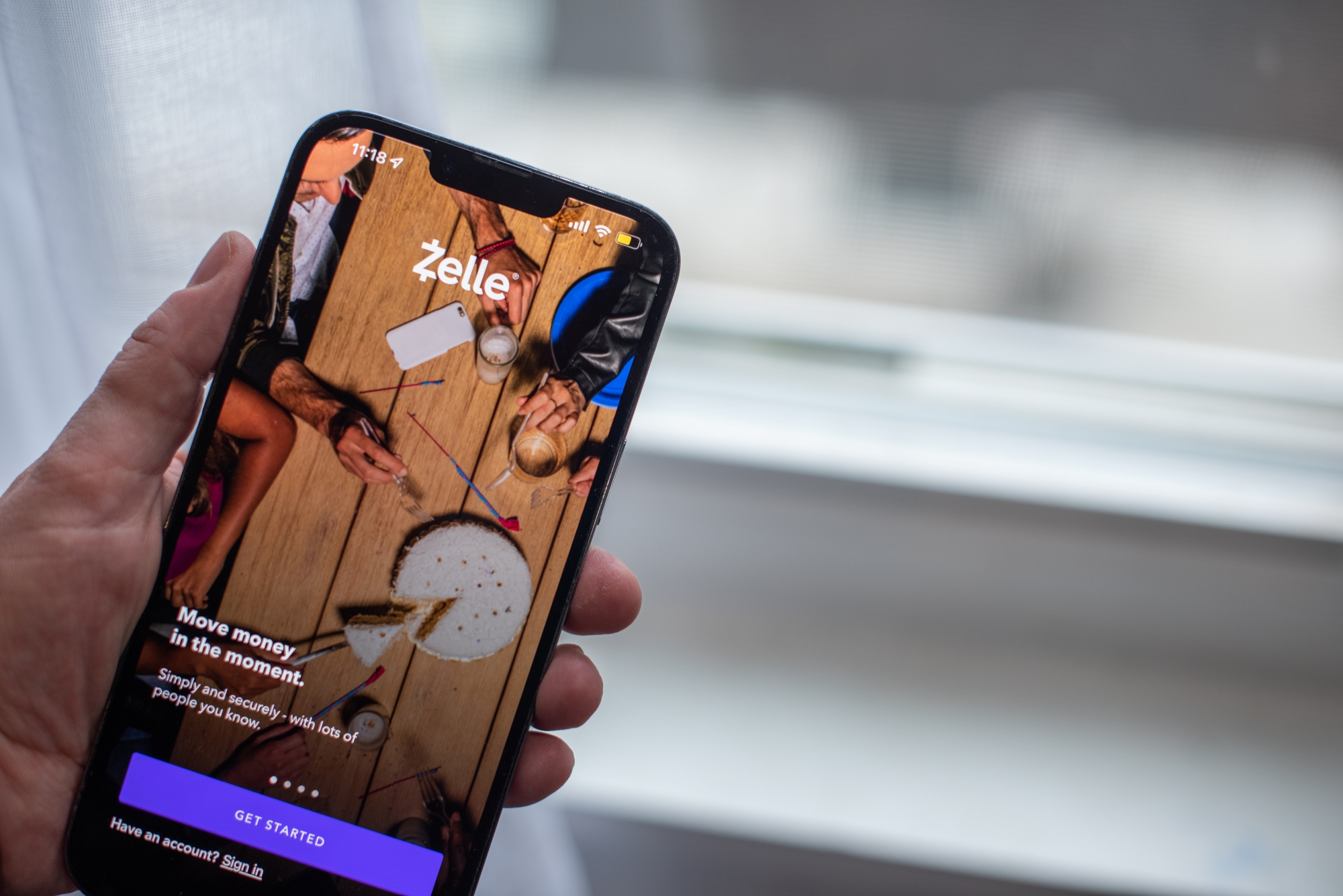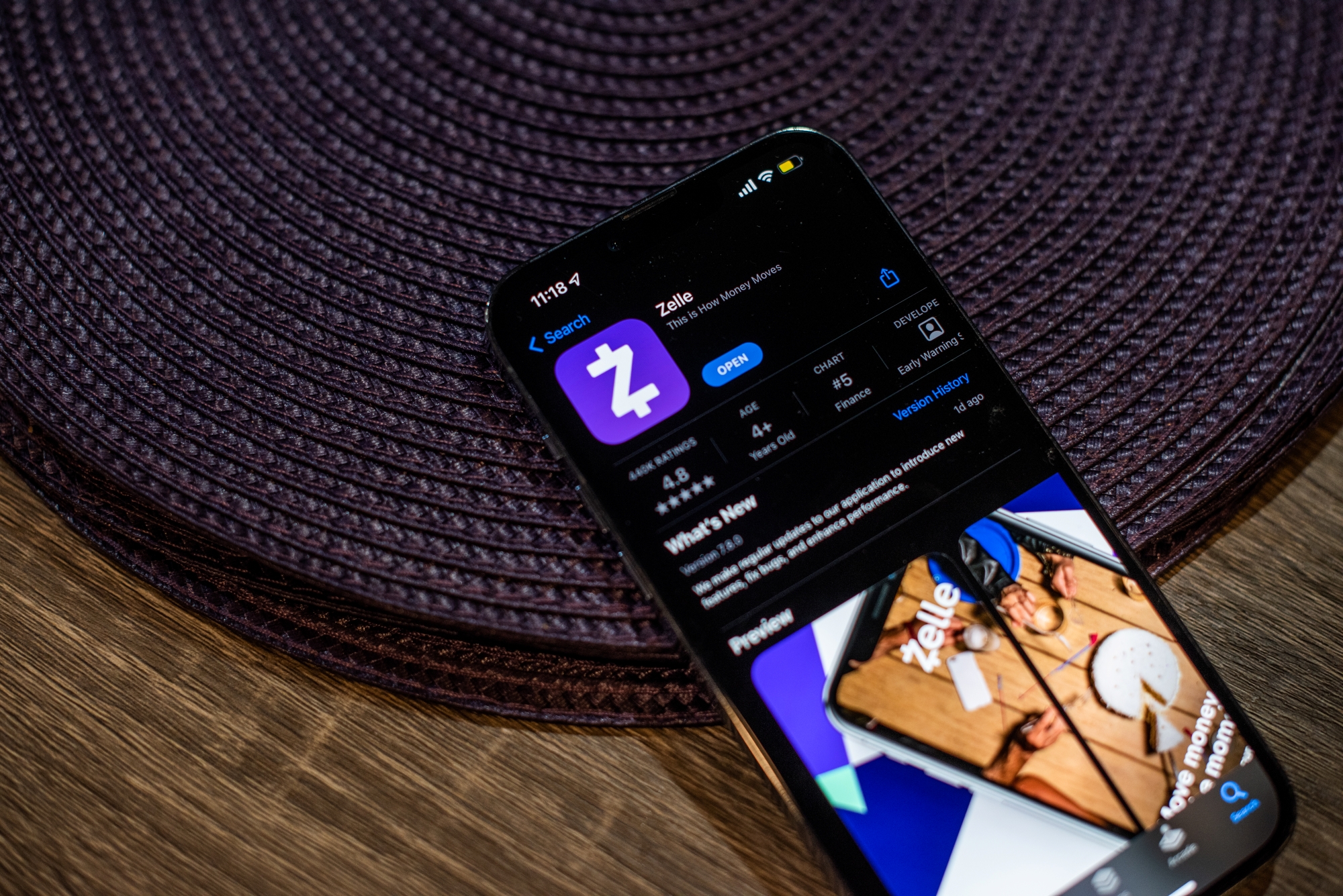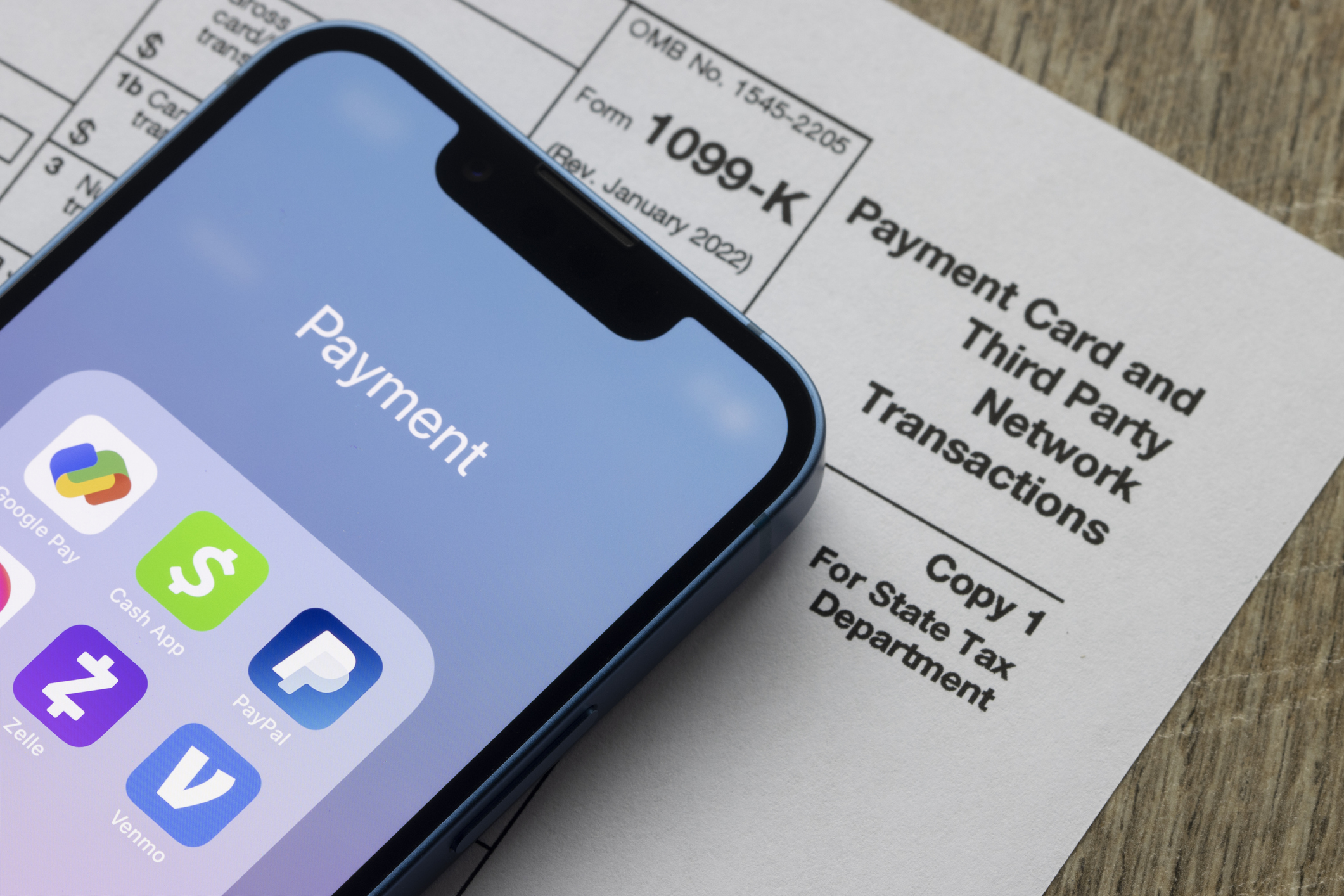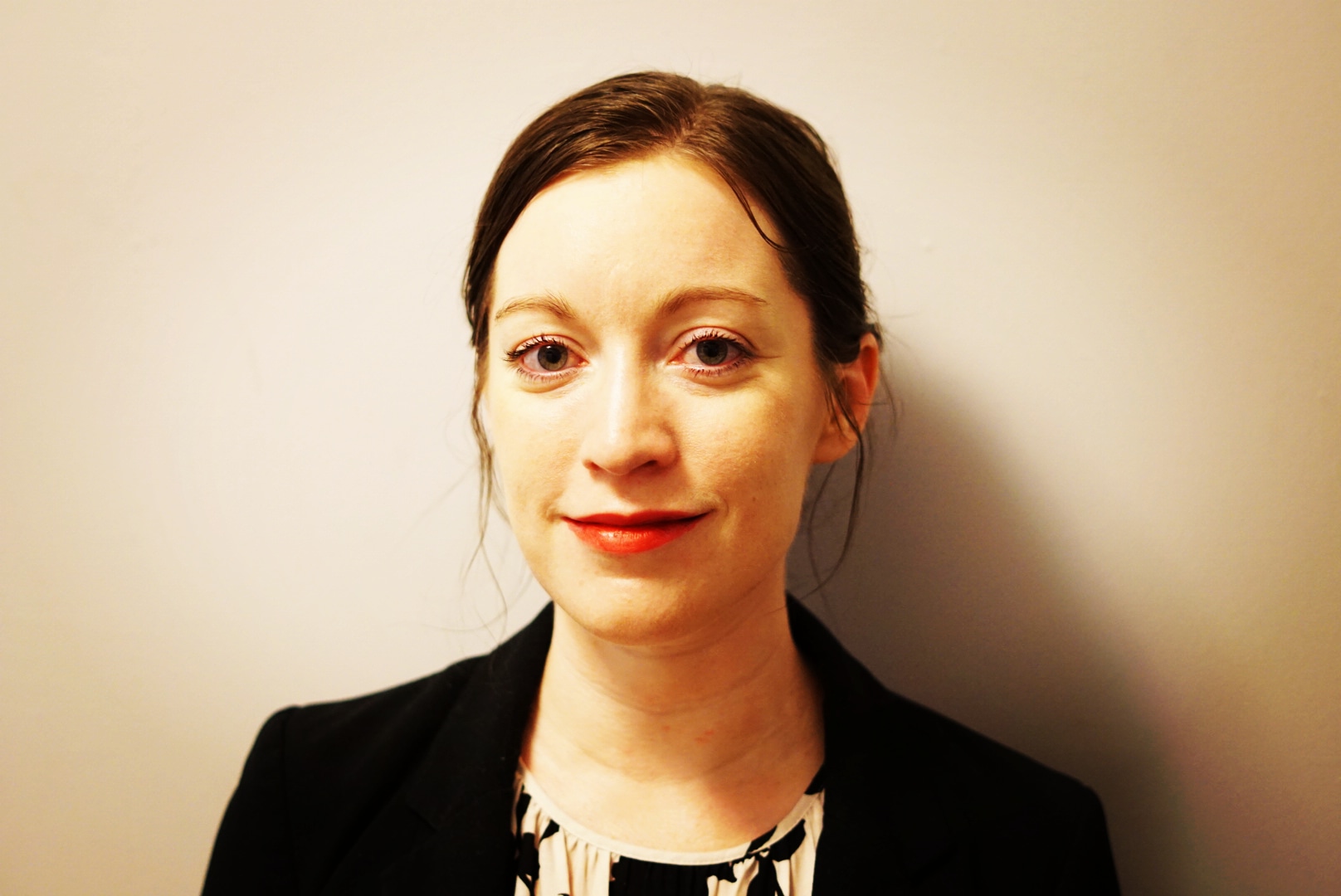Lawsuit Claims Zelle Security Lapses Cost Over $1 Billion in Fraud: What You Need to Know
New York's attorney general is suing Zelle for allegedly allowing "fraudsters to run rampant."

Profit and prosper with the best of Kiplinger's advice on investing, taxes, retirement, personal finance and much more. Delivered daily. Enter your email in the box and click Sign Me Up.
You are now subscribed
Your newsletter sign-up was successful
Want to add more newsletters?

Delivered daily
Kiplinger Today
Profit and prosper with the best of Kiplinger's advice on investing, taxes, retirement, personal finance and much more delivered daily. Smart money moves start here.

Sent five days a week
Kiplinger A Step Ahead
Get practical help to make better financial decisions in your everyday life, from spending to savings on top deals.

Delivered daily
Kiplinger Closing Bell
Get today's biggest financial and investing headlines delivered to your inbox every day the U.S. stock market is open.

Sent twice a week
Kiplinger Adviser Intel
Financial pros across the country share best practices and fresh tactics to preserve and grow your wealth.

Delivered weekly
Kiplinger Tax Tips
Trim your federal and state tax bills with practical tax-planning and tax-cutting strategies.

Sent twice a week
Kiplinger Retirement Tips
Your twice-a-week guide to planning and enjoying a financially secure and richly rewarding retirement

Sent bimonthly.
Kiplinger Adviser Angle
Insights for advisers, wealth managers and other financial professionals.

Sent twice a week
Kiplinger Investing Weekly
Your twice-a-week roundup of promising stocks, funds, companies and industries you should consider, ones you should avoid, and why.

Sent weekly for six weeks
Kiplinger Invest for Retirement
Your step-by-step six-part series on how to invest for retirement, from devising a successful strategy to exactly which investments to choose.
In a lawsuit filed this week, New York Attorney General Letitia James claimed that over $1 billion was stolen from Zelle users via fraud between 2017 and 2023.
The Consumer Financial Protection Bureau (CFPB) filed a lawsuit in December 2024 alleging the same thing, but when that lawsuit was dropped in March 2025, New York's attorney general decided to file a suit of her own against the digital payment service to seek compensation for New York consumers.
The new lawsuit claims that Early Warning Services, LLC (EWS), the company that owns the Zelle app, knew fraud was a problem on the app but chose not to do anything about it. In response to the news, a Zelle spokesperson called the lawsuit "a political stunt to generate press, not progress."
From just $107.88 $24.99 for Kiplinger Personal Finance
Become a smarter, better informed investor. Subscribe from just $107.88 $24.99, plus get up to 4 Special Issues

Sign up for Kiplinger’s Free Newsletters
Profit and prosper with the best of expert advice on investing, taxes, retirement, personal finance and more - straight to your e-mail.
Profit and prosper with the best of expert advice - straight to your e-mail.
The Zelle statement added: "More than 99.95% of all Zelle transactions are completed without any report of scam or fraud – which leads the industry."
If you've ever used Zelle to send or receive money, you know how convenient and quick it is. You have probably also heard about the many forms of fraud and scams that swindle unsuspecting users. Here's what you need to know about the New York lawsuit against Zelle and some tips to avoid being scammed when using payment apps.
Why the lawsuit blames Zelle for $1 billion in fraud losses

The short version of the charges by the New York attorney general's office is that EWS failed to implement safeguards that would have protected users from fraud.
The lawsuit alleges that after receiving repeated reports of fraud, EWS chose not to adopt basic safety measures that it had the technology and know-how to do. As a result, the lawsuit claims, consumers lost over $1 billion while the company profited from the app's rapid growth.
By the time the company adopted basic safeguards in 2023, the New York attorney general says that the measures were essentially too little, too late. She is now asking that Zelle pay stolen funds back to New York consumers who have been hit by fraudsters on the app.
Here's a quick timeline of what happened, according to the lawsuit:
- In 2017, the Zelle payment app was launched by EWS, a company co-owned by seven of the nation's largest banks – Bank of America, Chase, Wells Fargo, Capital One, Truist, PNC Bank and U.S. Bank. The app was rushed to market to compete with fast-growing rivals like Venmo and Cash App, the lawsuit says.
- Also beginning in 2017, EWS ran multiple ad campaigns emphasizing the app's safety and security. That included leveraging its connection to big banks that allowed the online payment system to be automatically integrated directly into users' existing mobile banking apps. One ad said Zelle is "backed by the banks, so you know it’s secure."
- By 2019, fraud was a problem, but the company hadn't adopted security measures to combat it, including not requiring banks to report fraud, the lawsuit claims. While it did require banks to report takeover fraud (when your account is hacked into or otherwise accessed without your permission), EWS was lax about the timing of reporting, the lawsuit claims, which gave fraudsters more time to "victimize additional consumers."
- In 2019, EWS developed a framework of "basic network safeguards" that could have made certain types of fraud more difficult. But, "EWS abandoned the basic network safeguards," the lawsuit says, opting for a less effective alternative.
- In 2023, the company implemented the "basic network safeguards" and fraud immediately decreased, suggesting that hundreds of millions of dollars could have potentially been saved in the years between 2019 and 2023 if EWS had adopted those safety measures when it first developed them. This is the main thrust of the attorney general's lawsuit.
Zelle's easy-to-use payment platform is just as easy to use for fraudsters

The same features that make Zelle so convenient for you also made it an easy target for fraudsters, according to the complaint filed by the New York state attorney general's office.
Some of the security gaps the lawsuit claims were present before "basic network safeguards" were implemented in 2023 included:
- A "quick registration process and lack of verification," making it easy for fraudsters to sign up.
- "Limited information displayed" when sending money to someone, making it easy for scammers to trick people into sending money to fraudulent email addresses.
- The immediate availability of funds after a transfer, making it easy for fraudsters to take the money and run, and next to impossible to claw those funds back if you're a victim.
- The ease with which users could change email addresses, link to different bank accounts or link to accounts at different banks, making it easy for scammers to juggle multiple scams at once and evade detection.
The complaint filed by the New York attorney general claims that basic safeguards could have helped protect many consumers from fraud.
As an example, the New York complaint describes a scam in which a fraudster registered on Zelle using an email with "Coned Billing" in the name — Con Edison is the major utility provider in New York City — and sent messages to users claiming they owed money and their power would be shut off if they didn't pay. The complaint says that if EWS had implemented a system for flagging potentially misleading email addresses, that email could have been blocked.
Save Up to 68% On Aura Identity Theft Protection
Aura provides everything you need to protect your identity. Get up to 250x faster fraud alerts, 3-bureau credit monitoring, up to $5 million in identity theft insurance, and 24/7 U.S.-based fraud support. It also includes an antivirus, VPN and password manager for proactive security. Kiplinger readers can save up to 68% when they sign up.
Preferred partner (What does this mean?)
Protect yourself from fraud when using payment apps

While it's too early to say what will happen with the lawsuit in New York, there are steps you can take today to protect yourself from fraud or scams.
Here are a few of the most impactful steps:
- Know how easy it is to impersonate trusted people or organizations. Just because the name reads "Coned Billing" or otherwise looks familiar doesn't mean it's actually attached to the account in question. For individuals you send money to, get their payment app information from them in person and save it in your payment app ahead of time so you can easily spot a false contact.
- Know that you often can't get your money back from a scam. Zelle, and some participating banks, differentiate between "fraud" and "scams." Fraud is when someone takes money out of your account without your knowledge or permission. In many cases, banks will usually refund this type of theft. A scam, on the other hand, is when someone tricks you into voluntarily sending them money. Because it was technically voluntary, albeit through deception, some banks won't refund this type of theft. So, if you're ever in doubt, it's better to be too cautious.
- Hang up and verify before giving any personal information or sending money. Nothing is so urgent that you can't take a few minutes to verify the information you're being told. Even if the person knows certain details about you, hang up (or ignore the email). Then, go to the organization's website and use the contact information found there to call back.
- Question unusual or unexpected payment requests from loved ones. No matter how urgent or legitimate it seems, always hang up (or ignore the text/email) and call the person back by calling the number saved in your contact list. If it's that person, they won't mind you taking that minute to verify.
- If you really do owe money, pay it the way you normally would, not through a payment app. If your utility company or bank claims you owe money, you don't need to pay them right there via a payment app. You can log into the online portal where you usually schedule bill payments and see any balance owed there. Then, set up a payment using your usual methods. If online portals aren't available for a particular company, verify the amount owed in person and make the payment that way.
- Monitor your accounts regularly for unusual activity. Check your checking and savings accounts regularly, along with any credit cards you have. If you spot a transfer or charge that you don't recognize, call your bank right away. At the same time, change your password for accessing that account and consider locking the card or the account altogether while sorting out the issue with your bank.
Fraud prevention starts with awareness and caution
Regardless of the lawsuit’s outcome, this case is a reminder to stay vigilant when using payment services like Zelle. While providers should implement safeguards to keep scammers out, you should still be cautious and trust your instincts if something feels off.
Related content
Profit and prosper with the best of Kiplinger's advice on investing, taxes, retirement, personal finance and much more. Delivered daily. Enter your email in the box and click Sign Me Up.

Rachael Green is a personal finance eCommerce writer specializing in insurance, travel, and credit cards. Before joining Kiplinger in 2025, she wrote blogs and whitepapers for financial advisors and reported on everything from the latest business news and investing trends to the best shopping deals. Her bylines have appeared in Benzinga, CBS News, Travel + Leisure, Bustle, and numerous other publications. A former digital nomad, Rachael lived in Lund, Vienna, and New York before settling down in Atlanta. She’s eager to share her tips for finding the best travel deals and navigating the logistics of managing money while living abroad. When she’s not researching the latest insurance trends or sharing the best credit card reward hacks, Rachael can be found traveling or working in her garden.
-
 Quiz: Do You Know How to Avoid the "Medigap Trap?"
Quiz: Do You Know How to Avoid the "Medigap Trap?"Quiz Test your basic knowledge of the "Medigap Trap" in our quick quiz.
-
 5 Top Tax-Efficient Mutual Funds for Smarter Investing
5 Top Tax-Efficient Mutual Funds for Smarter InvestingMutual funds are many things, but "tax-friendly" usually isn't one of them. These are the exceptions.
-
 AI Sparks Existential Crisis for Software Stocks
AI Sparks Existential Crisis for Software StocksThe Kiplinger Letter Fears that SaaS subscription software could be rendered obsolete by artificial intelligence make investors jittery.
-
 One of the Most Powerful Wealth-Building Moves a Woman Can Make: A Midcareer Pivot
One of the Most Powerful Wealth-Building Moves a Woman Can Make: A Midcareer PivotIf it feels like you can't sustain what you're doing for the next 20 years, it's time for an honest look at what's draining you and what energizes you.
-
 I'm a Wealth Adviser Obsessed With Mahjong: Here Are 8 Ways It Can Teach Us How to Manage Our Money
I'm a Wealth Adviser Obsessed With Mahjong: Here Are 8 Ways It Can Teach Us How to Manage Our MoneyThis increasingly popular Chinese game can teach us not only how to help manage our money but also how important it is to connect with other people.
-
 Looking for a Financial Book That Won't Put Your Young Adult to Sleep? This One Makes 'Cents'
Looking for a Financial Book That Won't Put Your Young Adult to Sleep? This One Makes 'Cents'"Wealth Your Way" by Cosmo DeStefano offers a highly accessible guide for young adults and their parents on building wealth through simple, consistent habits.
-
 My Spouse and I Are Saving Money for a Down Payment on a House. Which Savings Account is the Best Way to Reach Our Goal?
My Spouse and I Are Saving Money for a Down Payment on a House. Which Savings Account is the Best Way to Reach Our Goal?Learn how timing matters when it comes to choosing the right account.
-
 We're 78 and Want to Use Our 2026 RMD to Treat Our Kids and Grandkids to a Vacation. How Should We Approach This?
We're 78 and Want to Use Our 2026 RMD to Treat Our Kids and Grandkids to a Vacation. How Should We Approach This?An extended family vacation can be a fun and bonding experience if planned well. Here are tips from travel experts.
-
 Why Most Millionaires Don't Feel Wealthy — and What It Really Takes to Feel Financially Secure
Why Most Millionaires Don't Feel Wealthy — and What It Really Takes to Feel Financially SecureA growing share of Americans reach millionaire status yet still worry about money. Here's why wealth feels different today and how to build true financial confidence.
-
 You Could Be Overpaying for Internet. Here’s How to Choose the Right Type
You Could Be Overpaying for Internet. Here’s How to Choose the Right TypeFiber, cable, 5G wireless and satellite internet all offer different speeds, reliability and price points. Understanding the differences could help you lower your monthly bill or improve performance.
-
 My First $1 Million: Retired From Real Estate, 75, San Francisco
My First $1 Million: Retired From Real Estate, 75, San FranciscoEver wonder how someone who's made a million dollars or more did it? Kiplinger's My First $1 Million series uncovers the answers.
